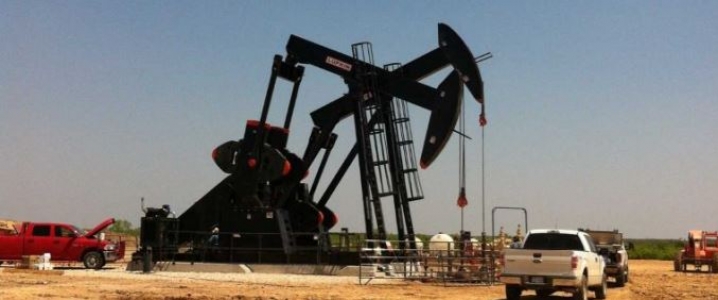Oil industry executives are surely pleased with themselves this year, with both large and small companies reporting improved financials after years of struggling.
A Reuters survey finds a significant shift towards profitability for the U.S. shale industry after years of rising debt and negative cash flow. Reuters analyzed 32 independent shale companies, and about a third of them were cash flow positive in the third quarter. That may not seem all that great, but only three companies out of those 32 had positive cash flow a year earlier.
In fact, years of cost cutting is paying off for many companies, many of which have aimed to breakeven with oil prices at $50 or $60 per barrel. Not all are there, to be sure, but the increase of oil prices this year pushed many into profitable territory. The oil majors, on the other hand, are the most profitable they have been in years.
The big question now is what do they do with the windfall? Spend more in order to grow production or return excess cash to shareholders? This is shaping up to be one of the defining questions of this new oil era, especially for the largest oil companies.
To be sure, just about every oil executive trumpets their commitment to capital discipline when they get the chance. Wall Street clearly favors this approach. In the past, growth was the name of the game, and share prices rose and fell on growth in production and reserves. These days, profits and cash flow come first.
Last week, the Wall Street Journal pointed out the different stock performances of companies that pursue these different strategies. Over the past year, ExxonMobil’s share price has been flat, as it has announced an aggressive spending plan and multi-year campaign to grow production. Meanwhile ConocoPhillips is shrinking, selling off assets, and focusing on shale drilling and shareholder returns. Exxon’s share price is flat, but Conoco has jumped by 25 percent. Related: The Saudis Are Hinting At Another U-Turn In Oil Markets
However, pursuing a strategy that prescribes returning every surplus dollar to shareholders is a recipe for long-term decline. The industry is “caught in a capex conundrum,” according to Tom Sanzillo and Kathy Hipple of the Institute for Energy Economics and Financial Analysis.
Already the oil majors are slipping. “In 2008, the energy sector commanded roughly 16% of total Standard and Poor’s 500 market capitalization. Today, that figure has fallen to roughly 6%,” Sanzillo and Hipple wrote in a commentary. “In 1980, seven of the top 10 companies in the index were oil companies. Today, only ExxonMobil is in the top 10 (ranking tenth).”
The uptick in oil prices over the first nine months of this year has buoyed optimism and led some companies to begin to ratchet up spending. It remains to be seen if that turns out to be a mistake, but the latest plunge in oil prices is a reminder of the risks in this volatile market. “The upshot to oil and gas industry turmoil is that sophisticated investors now treat oil and gas companies as speculative investments,” Sanzillo and Kipple wrote for IEEFA.
The recent fall in oil prices will probably solidify the newfound “capital discipline” approach by many oil and gas companies. At this point, that’s what Wall Street wants, and most executives in the industry appear willing to keep spending in check, having been burned by repeated downturns in prices over the last few years. Related: Alaska Sees Record Breaking Year For Oil And Gas Leases
“Companies largely stated prioritization for returns and [free cash flow] instead of growth,” Goldman Sachs wrote in a note to clients after meeting with executives from several oil companies, including Occidental Petroleum, Apache Corp. and Range Resources.
“As its cash flow base grows, management indicated it would pursue dividend growth from its more secular cash flows and use cyclical excess [free cash flow] for repurchases or select opportunities for reinvestment,” Goldman said of Occidental’s plans. “Management indicated there would have to be a sustained change in oil prices in either direction to change capex plans.”
Investors are pleased that the industry is finally focusing on profits, and not simply growth. The flip side is that to some degree the industry is throwing up the white flag in terms of long-term growth. It’s not clear what that means five or ten years from now, but at this point, most oil and gas companies are focusing on near-term shareholder returns, not growing reserves for the next few decades. It’s a decidedly short-term strategy. But with peak oil demand and a climate crisis looming, that probably makes the most sense.
By Nick Cunningham of Oilprice.com
More Top Reads From Oilprice.com:
- Is It Too Late To Avoid An Oil Supply Crisis?
- Natural Gas Price Explosion Bankrupts Traders
- The Impending Endgame In Oil Markets



















If this is the mindset behind his perspective regarding crude oil, then what is the point to talk about whether big oils companies are increasing their capital expenditures budget or not. If the demand for oil is declining and oil is condemned to cause climate crisis, then any company will be very foolish to allocate any significant amount of capitals to exploration and production for the long term. The best for them to do is to return as much cash as possible to their shareholders and wind down their operation soon.